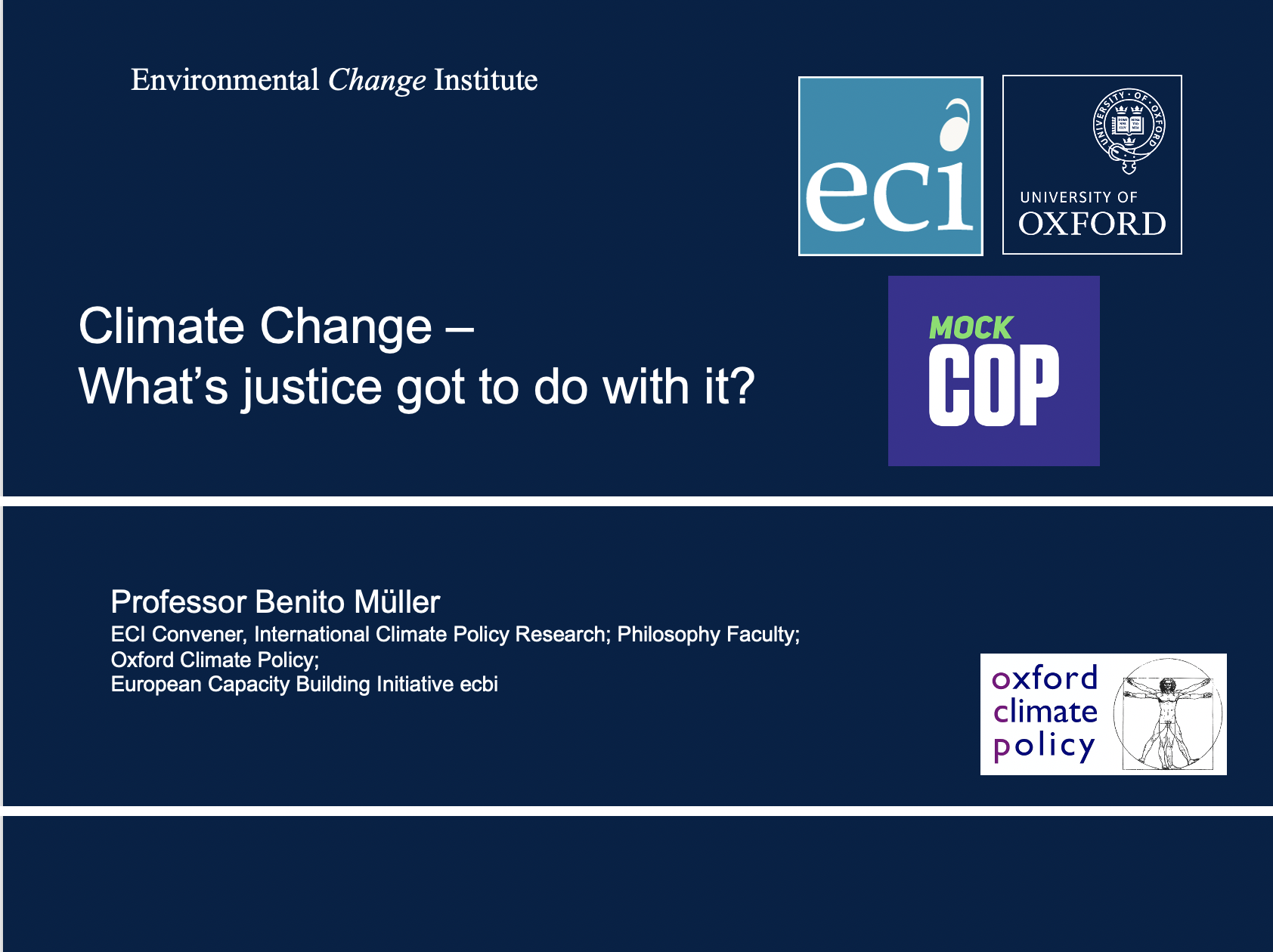
ecbi Director Benito Müller provided academic support for the Mock COP26, held from 19 November to 1 December 2020. Presenting on climate justice, Müller said climate change is not a natural disaster or an “act of god” – it is anthropogenic (caused by humans), who can be expected to take responsibility for their actions and be held responsible for them. Climate change can have negative impacts on humans – it is a situation where humans can impose harm on others without their consent, which is generally seen as being unjust.
There are two ways this sort of injustice can be dealt with, Müller said:
- Compensatory justice, by providing compensation for the harm caused.
- Punitive justice, by punishing the perpetrators or the people who have caused harm.
He noted that there are several difficult issues associated with these approaches. For example, in the case of compensatory justice – in the context of environmental pollution also known as the ‘polluter pays principle’ – key questions include:
- Who decides what constitutes adequate compensation?
- Who should provide it and what share?
- Should it be in proportion to their responsibility for the harm, or should it in proportion to what one can afford, what one is capable to provide?
Müller said the distinction between “responsibilities” and “capabilities” also plays an important role in deciding how to share the effort or burden involved in addressing climate change in a fair manner. This is an issue of what is called “distributive justice”, to establish what it means to do one’s “fair share” in combatting climate change. The UNFCCC has adopted the CBDR principle in this context. Article 3.1 states that: “The Parties should protect the climate system for the benefit of present and future generations of humankind, on the basis of equity and in accordance with their common but differentiated responsibilities and respective capabilities. Accordingly, the developed country Parties should take the lead in combating climate change and the adverse effects thereof”.
This shows how justice has very concrete and practical implications and raises another crosscutting justice issue: climate change not only affects people here and now, but also future generations. How can we make sure they are not unfairly harmed by us, or forced to take an unfair share of the burden, given that they clearly cannot have any responsibility for the problem. This is known as “intergenerational justice”.
Müller encouraged participants to delve into the issue more deeply because climate justice is the heart of the whole regime and cannot be ignored even in the more “bottom-up” context of the Paris Agreement.
